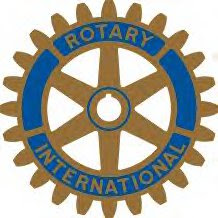 Our guest speaker at the March 2009 meeting was the Senior External Relations officer of the World Health Organization at the UN Headquarters in New York. In this position, Mr. Obermeyer (right) is responsible for UN reform, inter-governmental processes and UN system entities based in New York, and non-governmental organizations that focus on public health issues. Prior to joining WHO, he served as Deputy Director in the UN Environment Program, and served in the South African Foreign Ministry on various assignments in Africa and South America. Most recently, he served as Deputy Permanent Representative in Kenya. Mr. Obermeyer was trained as a political scientist and has extensive multilateral experience in negations relating to environmental sustainability and governance.
Our guest speaker at the March 2009 meeting was the Senior External Relations officer of the World Health Organization at the UN Headquarters in New York. In this position, Mr. Obermeyer (right) is responsible for UN reform, inter-governmental processes and UN system entities based in New York, and non-governmental organizations that focus on public health issues. Prior to joining WHO, he served as Deputy Director in the UN Environment Program, and served in the South African Foreign Ministry on various assignments in Africa and South America. Most recently, he served as Deputy Permanent Representative in Kenya. Mr. Obermeyer was trained as a political scientist and has extensive multilateral experience in negations relating to environmental sustainability and governance. Also at the meeting and in the photo is Dr. Giorgio Giovannoni (middle) and the Benin Minister Counselor to the United Nation (second from the right) to announce the establishment of the new hospital in Benin that Dr. Giovannoni was instrumental in building and financing.
The World Health Organization has partnered with several of Rotary International's world-wide action groups including diabetes, malaria reduction, and treated bed nets distribution. In addition to the recent grant of $255 million from the Bill Gates Foundation, Rotarians have already raised $700 million and is expected to have spent about $1 billion in the Polio-plus campaign within the next future.
Our guest speaker pointed out that The World Health Organization was established on April 7 1948 and was a continuation of the Health Organization of the League of Nations. As a result, it has retained its headquarters at the former League of Nations compound in Geneva, Switzerland. It is funded by the 193 member states with offices in 147 countries within six regional centers.
Unlike most other UN agencies, WHO still uses the regions based system based on the League of Nation delineation rather than that of most of the post-1948 organizations of the United Nations.
Labeling medicine and establishing a world wide standards The New York Office is to work with UN headquarters and works closes with the UN economic and Security council. The Secretary General has made health one of his three top priorities for his first term. Global health and foreign policy-Secretary general to adapt resolution global and heath security
Label medicines and establishing a world-wide standard on medicines and doses is one of the long established responsibilities of WHO. It is essential that health practitioners can be assured that drugs and drug names are consistent throughout the world. A second responsibility is that with more than two billion air travel passenger a year, WHO has established health containment standards for governments to inform other governments health containment of acute transmittable diseases on a cross-boarder level
Future challenges of WHO include:
- Complete eradication of polio with the support of Rotary. While there are less than two thousand cases of Polio worldwide some educational and organization work still needs to be continued
- Curtail Diabetes increase due to increased economic development and improved life style changes an unintended consequence is such less exercise and changing diets and diabetes is on an upward curve in many countries.
- Climate-change has already had a negative impact on disease and food production. For example malaria is on the increase in South America when it was primarily an African and Asian disease. Agricultural production may be affected.
- Malnutrition causes one-quarter of the worlds children' death, and 240 million are undernourished at any given time. Climate patterns change China Gobi desert is encroaching on agricultural lands in southern China need to feed more than 1 billion people Global warming is affecting weather patterns creating dryer conditions. If the warming continues, deserts which make up 25 per cent of China’s land will expand to 40 per cent.
- Finical crisis - governments are retooling their $2.3 billion budget and WHO sees no increase in their budget. WHO will have to do more with much less during the current fiscal crisis. Historically, education and health budgets are the first to be reduced when governments are under pressure
- Partnerships with private sector Ambivalent relation with pharmaceutical. WHO is partnering with Pfizer and help distribute drugs and also on research.Pfizer announced collaboration that gives access to its library of medicinal compounds – the world’s largest – and also brings scientists from developing countries into Pfizer’s laboratories for training in drug discovery techniques.
 Moderator Joseff Klee (left) invited two law students from St. Thomas University in Florida to participate in the discussion.
Moderator Joseff Klee (left) invited two law students from St. Thomas University in Florida to participate in the discussion.









